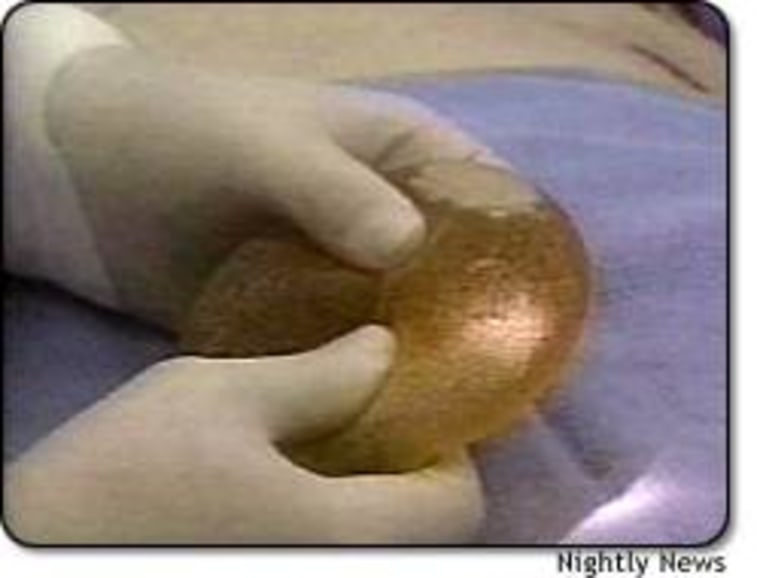Silicone-gel breast implants may soon return to the U.S. market after an 11-year, near-total ban now that government advisers have recommended reluctantly that sales resume under very strict conditions.
Topping the list of requirements is that Inamed Corp., the manufacturer seeking an end to the ban, would have to operate a registry to track the health of all implant recipients. Women also would have to get annual doctor’s exams to ensure the implants aren’t silently leaking silicone.
Women would have to be given detailed advice about the implants’ known risks, including very high rates of repeated surgeries and lingering safety questions, before their operation, the advisers to the Food and Drug Administration said Wednesday.
And because most women who report pain, broken implants and other side effects do so within 10 years of getting the devices, Inamed would have to extend its current safety study from the current three years of tracking to a full decade.
The decision was approved on a 9-6 vote after the FDA’s advisers spent two days hearing wrenching stories of dozens of women who blame silicone implants for permanent disfigurement, as well as others desperate to have what they consider a more natural-looking option to repair cancer-ravaged breasts or make healthy breasts bigger.
The decision was far short of a ringing endorsement and even supporters were adamant about the need for continued research to settle lingering questions.
Still, “as a cancer surgeon, I want my patients to have all the options,” said Dr. Ann Marilyn Leitch of the University of Texas Southwestern Medical School, who backed the implants’ return.
The FDA isn’t bound by its advisers’ recommendations but usually follows them. It has set no deadline for deciding Inamed’s request.
The decision disappointed women who had told the FDA of disabling pain and silicone oozing through their skin even after leaky implants were removed.
“It’s a black day for the women of this country when our government doesn’t protect us from such dangerous products,” said Lynda Roth of Greeley, Colo., who heads the Coalition of Silicone Survivors.
Others welcomed the news.
“It’s not a perfect device,” acknowledged Dr. James Wells, president of the American Society of Plastic Surgeons. But “the procedures significantly improve the quality of life for many patients.”
Silicone gel implants were highly popular until 1992, when fears that leaking silicone was causing serious diseases prompted the FDA to end routine sales. Since then, breast cancer patients and a few other women could get gel implants only through strictly controlled research studies; women merely wanting larger breasts had to get implants filled with salt water.
Inamed argued silicone implants have been exonerated of causing serious diseases like cancer and lupus, and that silicone implants are no riskier than today’s saline-filled ones.
“There is no evidence for any of these concerns,” Dr. Scott Spear of Georgetown University, an Inamed consultant, told the FDA panel.
Eleven years after the ban, here’s what’s known about silicone implants:
Studies have shown no evidence of major diseases, but they were too small and too short to rule out rare diseases or subsets of women especially vulnerable.
The biggest risk is local complications. In just three years, one in five women getting silicone implants for enlargement — and 46 percent of cancer survivors getting them — needed additional operations to treat severe pain, scarring and other problems. Up to a quarter had to have the implants removed or replaced in that time. FDA’s research suggests implants begin breaking more often after seven years.
Broken implants should be removed. The question is how to tell they are broken. Saline-filled implants deflate quickly, but silicone leaks slowly. Hence the advice that every implant recipient get an annual doctor’s exam. “This is as important as your annual mammogram,” stressed FDA adviser Barbara Manno, a Louisiana State University toxicologist.
If the FDA ultimately lets silicone implants resume routine sales, Inamed expects a surge in interest. Some 236,000 women had their breasts enlarged last year when saline was their main option; in countries where both types of implants are sold, 90 percent of recipients choose silicone implants, Inamed says.
